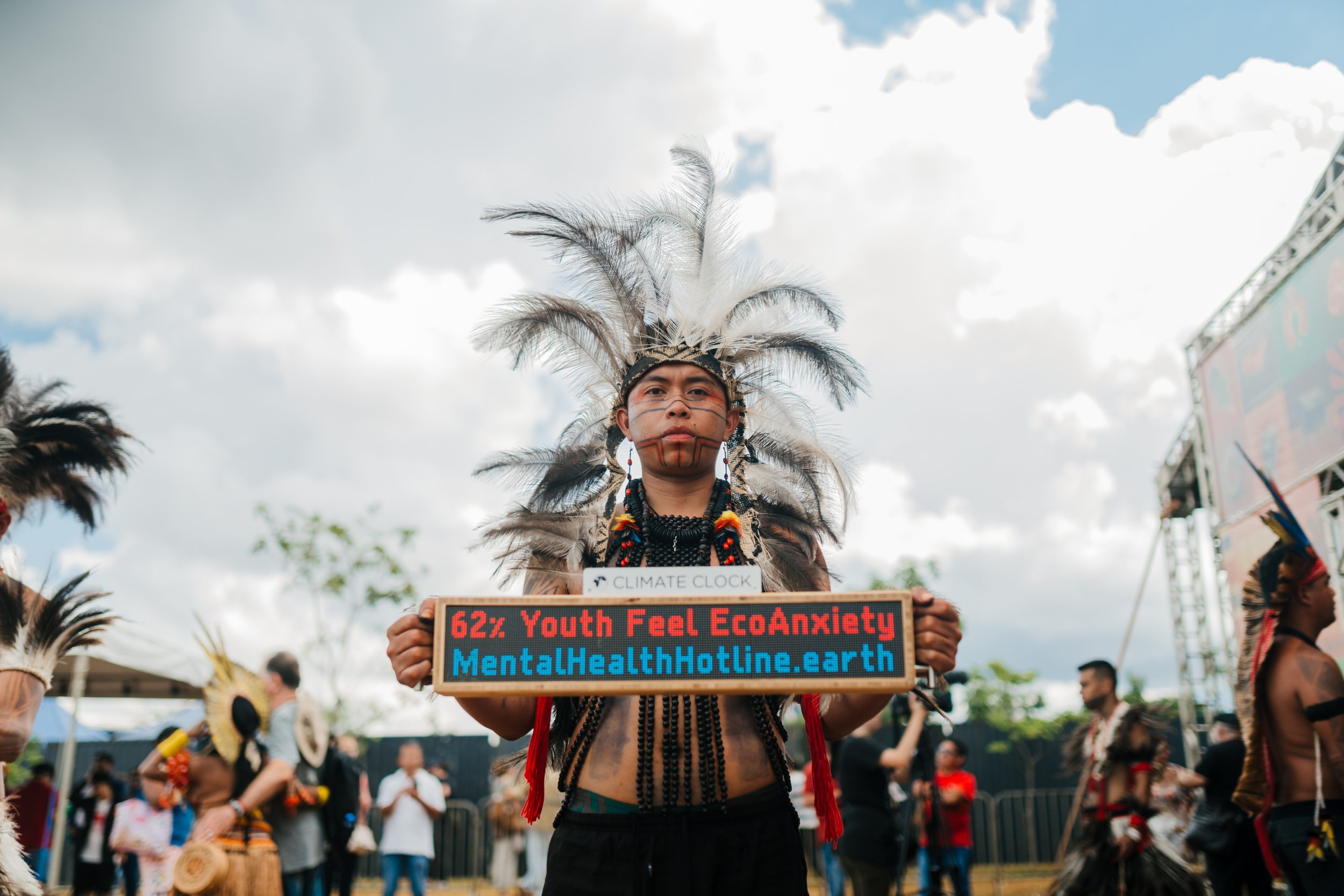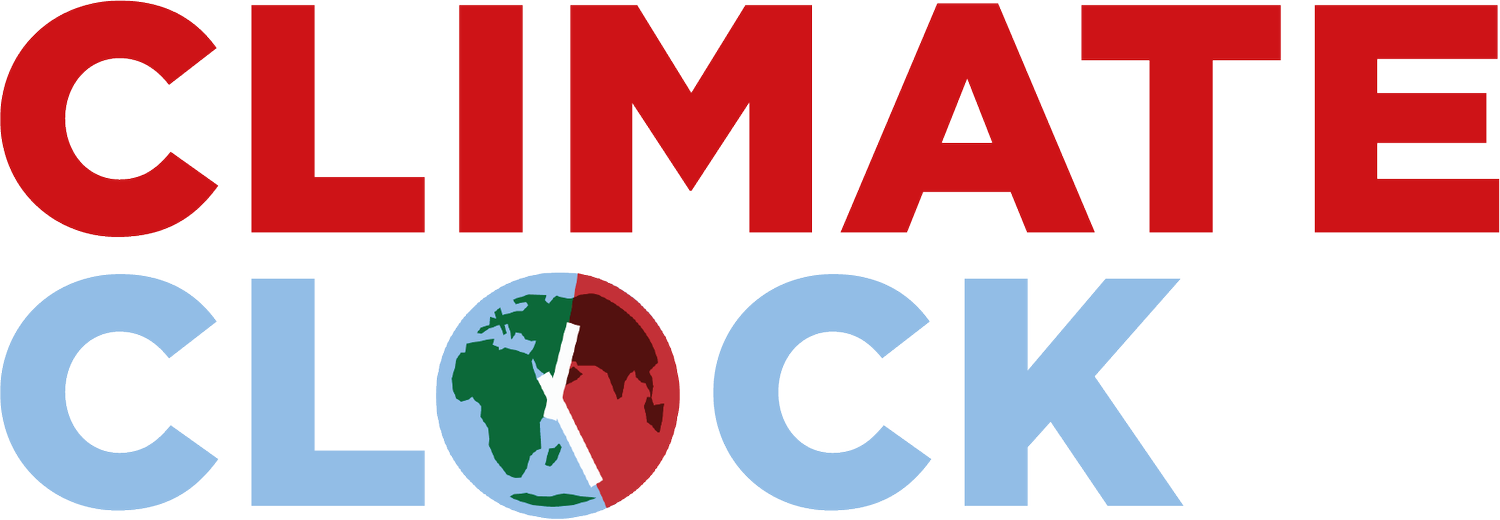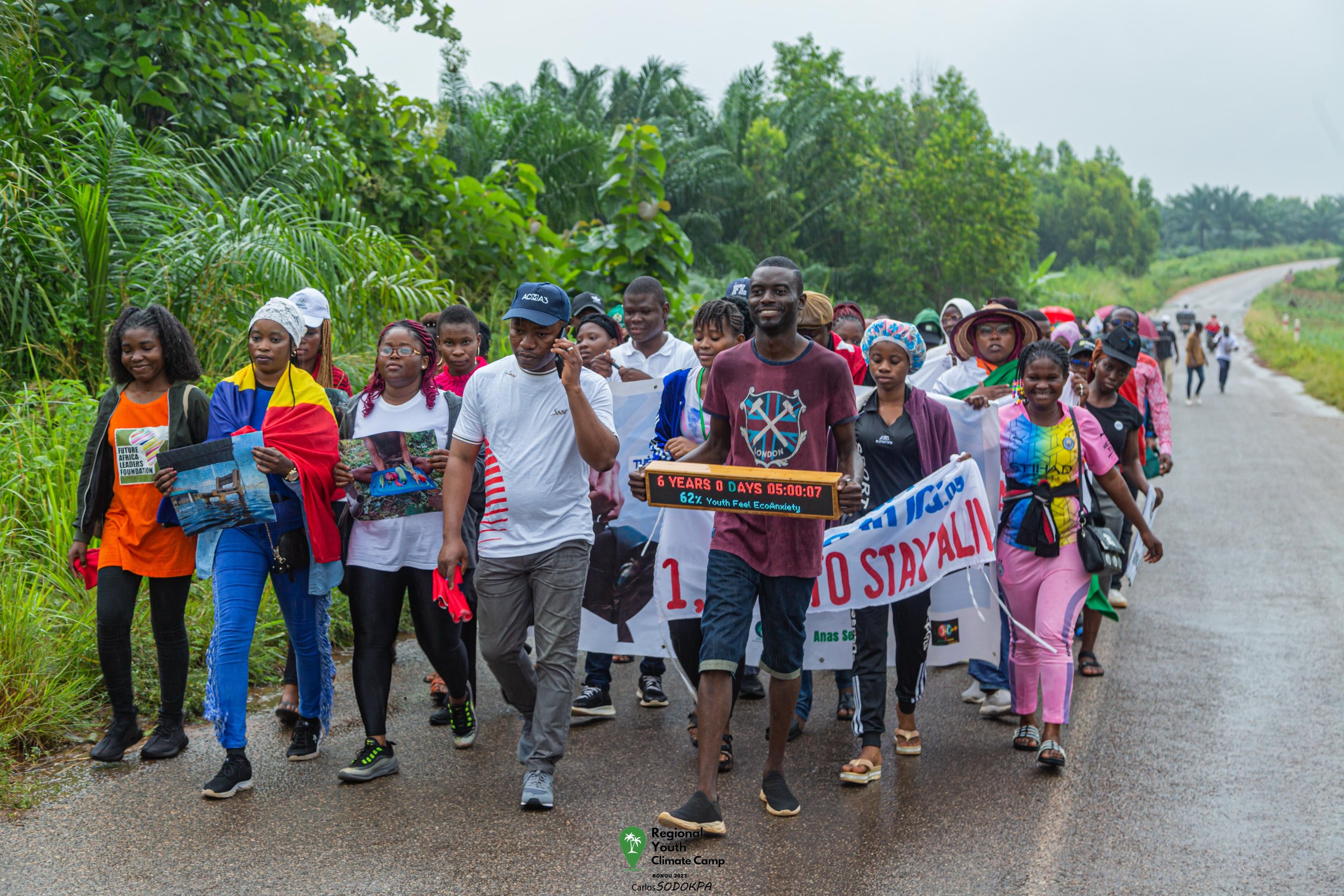CLIMATE ANXIETY HOTLINE
In addition to its traditional deadline and lifelines, the Climate Clock includes a virtual “hotline” offering support for those experiencing climate anxiety and trauma.
Let’s take care of each other.
Resources
-

Climate Psychology Alliance
Climate Psychology Alliance is a community of therapeutic practitioners, thinkers and artists who are dedicated to the psychology and emotions of the climate crisis.
-

Force of nature
Force of Nature is a non-profit that runs a free programme called Becoming a Force of Nature to help young people turn climate anxiety into agency, as well as helping people around the world host their own climate cafés.
-

Good Grief Network
The Good Grief Network host online gatherings guided by their 10 steps to resilience and empowerment in a chaotic climate. *This is a paid service.
-

Climate Awakening
Climate Awakening lead small, online Climate Emotions Conversations for you to share your thoughts and feelings on the climate emergency.
-

Gen Dread Newsletter
Gen Dread is a newsletter by Climate and Mental Health Researcher Britt Wray featuring essays, interviews and news relating to eco anxiety.
-

Psychologists for future
A group of psychologists and psychotherapists based in Germany who contribute their expertise to meet the challenges posed by the climate crisis.
-

Climate Mental Health Network
A network that address the mental health impacts of the climate crisis through education, community engagement and by harnessing the power of media and technology.
-

Ecopsychepedia
A trusted source for current research and thinking on how psychological factors drive the climate crisis, how the worsening crisis affects us psychologically and what we can do about it.

Je Antônio from the Terena people
FROM ANXIETY TO ACTION…
When people first see the Deadline on the Clock, they often feel a flood of anxiety.
That’s an understandable and natural response to a very real threat.
Young people with the most to lose are particularly impacted. A recent study in the Lancet medical journal revealed that 62% of young people feel anxious about the climate crisis. If that includes you, you are not alone.
One of the best remedies for anxiety is action. Which is why the Clock is an action project, and alongside the Deadline, shows many Lifelines, tracking our progress on key solution pathways that can help us secure a liveable future.
In the meantime, we must take care of ourselves and each other.
Here are a host of RESOURCES — from “climate cafes” to listings of climate-aware therapists — that can help you and your community move from anxiety to action:
What our spokespeople Are Saying
“The evidence shows that the climate crisis is hurting young people’s mental health worldwide. Many climate anxious youth experience moral injury from living in a system where power holders are not doing what the science says must be done to protect the future habitability of the planet. It isn’t that young people are so upset because the environment “is not doing well”, it’s that they feel betrayed by leaders on this issue, which makes their suffering worse. The good news is that courageous climate action can change that, and if we want today’s youth to enjoy a well functioning society when they’re older, it must.”
— Dr. Britt Wray, Lead of the Special Initiative on Climate Change and Mental Health, Department of Psychiatry and Behavioral Sciences, Stanford Medicine, and author of Generation Dread
“Climate anxiety is the internal alarm bell that tells you something is wrong. Right now, humanity is hurtling toward a cliff of climate collapse: we need people to wake up and look in the face of this crisis. When we're honest with ourselves, when we hold space for difficult emotions, we open the door to our courage... and instead of shutting us down, climate anxiety can be the fuel that motivates us."
— Clover Hogan, Climate Activist and Founder of Force of Nature
"The climate crisis impacts our minds, hearts, and bodies far more than is discussed privately and publicly. Globally, climate anxiety, depression, and trauma are all on the rise. The most vulnerable among us are the least responsible, and most impacted. Collectively, we need to change course. In order to collaboratively develop pro-social, equitable, and timely solutions to the crisis, it is essential that we address individual and community mental health needs. Caring for ourselves, each other, and the planet are mutually interdependent. Acknowledging the uncertainty of the moment helps us to move beyond hope vs doom, and find meaning and purpose in the crisis. We invite you to join us so that we can grow together towards a regenerative way of life."
— Rebecca Weston, Co-President, Climate Psychology Alliance - North America
LEGISLATION:
The Community Mental Wellness and Resilience Act
Recognizing the scale of climate anxiety, Senator Markey (MA) and Representative Tonko (NY-20) are introducing the Community Mental Wellness and Resilience Act during Mental Health Awareness Month
The CMWRA will establish a first-of-its-kind $30 million pilot grant program through the Centers for Disease Control (CDC) to provide funding to community-based mental wellness and resilience programs designed to address the compounding systemic mental health issues faced by communities bearing the brunt of the climate crisis.
“I applaud the Climate Clock for creating a virtual hotline so our families, friends, and neighbors can access resources to feel empowered to tackle the climate crisis. Environmental justice communities continue to bear the brunt of climate disasters that take a lasting toll on their mental health. We need to invest big into mental health resources that are affordable and accessible and empower communities to build resilience to climate change’s catastrophic impacts. That is why I am proud to introduce the Community Mental Wellness and Resilience Act with Representatives Tonko and Fitzpatrick. I will continue to fight for large, comprehensive funding in mental health care that uplifts individuals and families who are on the frontlines of climate disasters.”
– US Senator Ed Markey of Massachusetts
“The increasing number and severity of natural disasters and toxic stresses cost our communities dearly, taking lives and livelihoods—and the trauma felt from these disasters runs even further. Studies show that these impactful events can traumatize upwards of 40 percent of those who live in the affected area. That’s why I’m partnering with my colleagues to lead the way on this resilience building legislation that will help address our nation’s mental health crisis through grants and partnerships with local, community-based initiatives. I’ll continue to work to deliver science-based, evidence-informed solutions that benefit communities across our nation and offer a holistic response to the climate crisis.”












